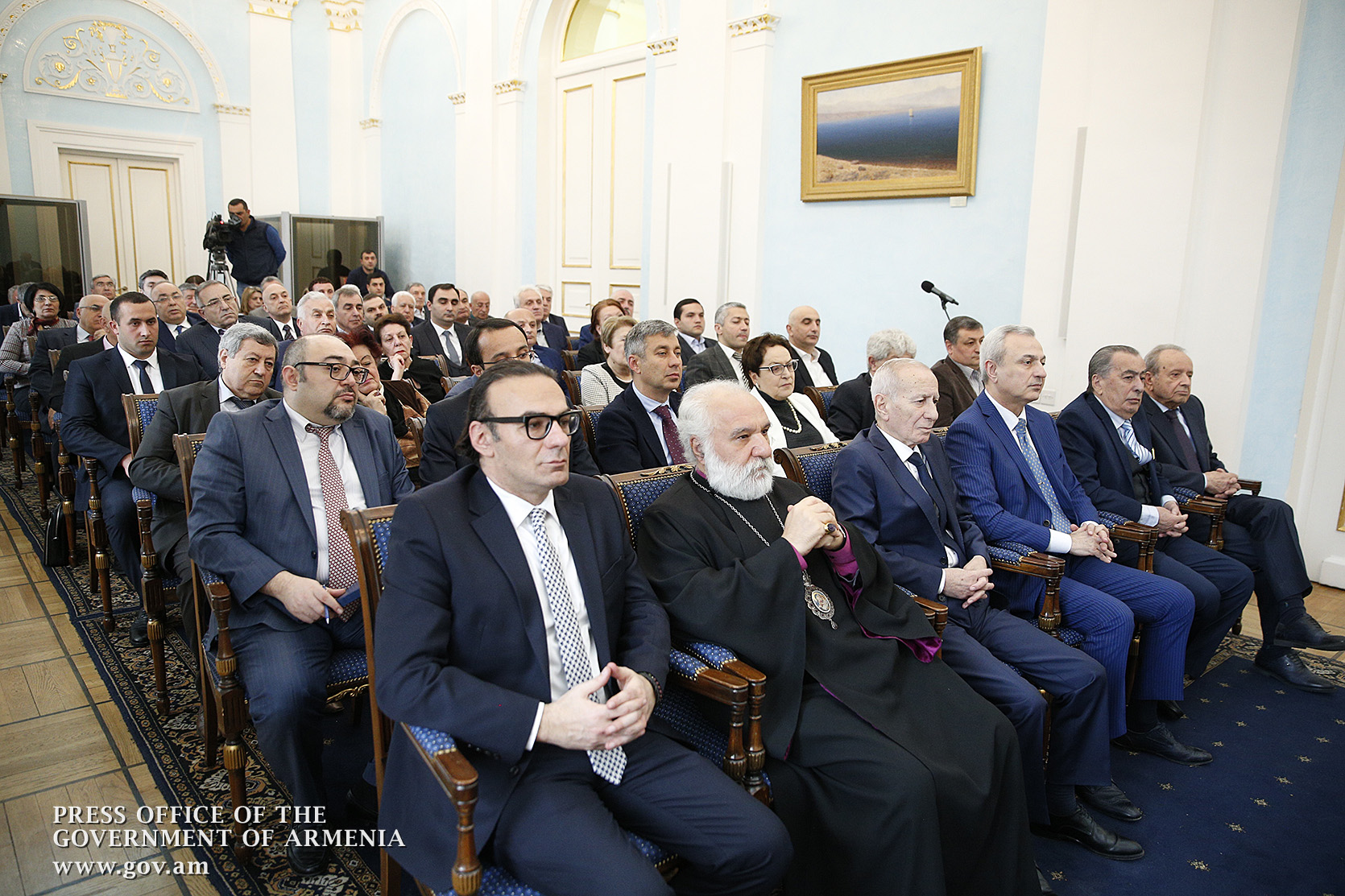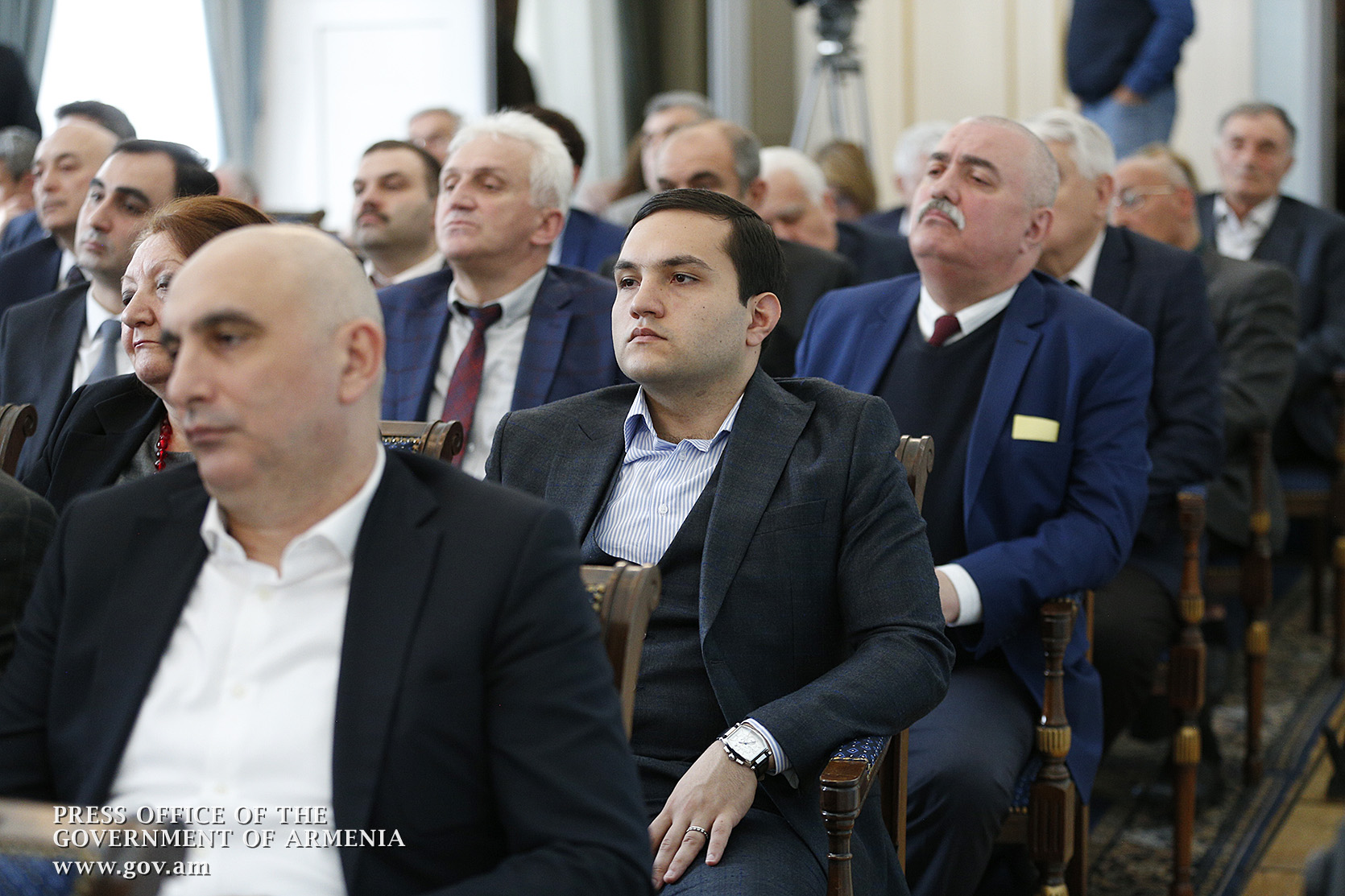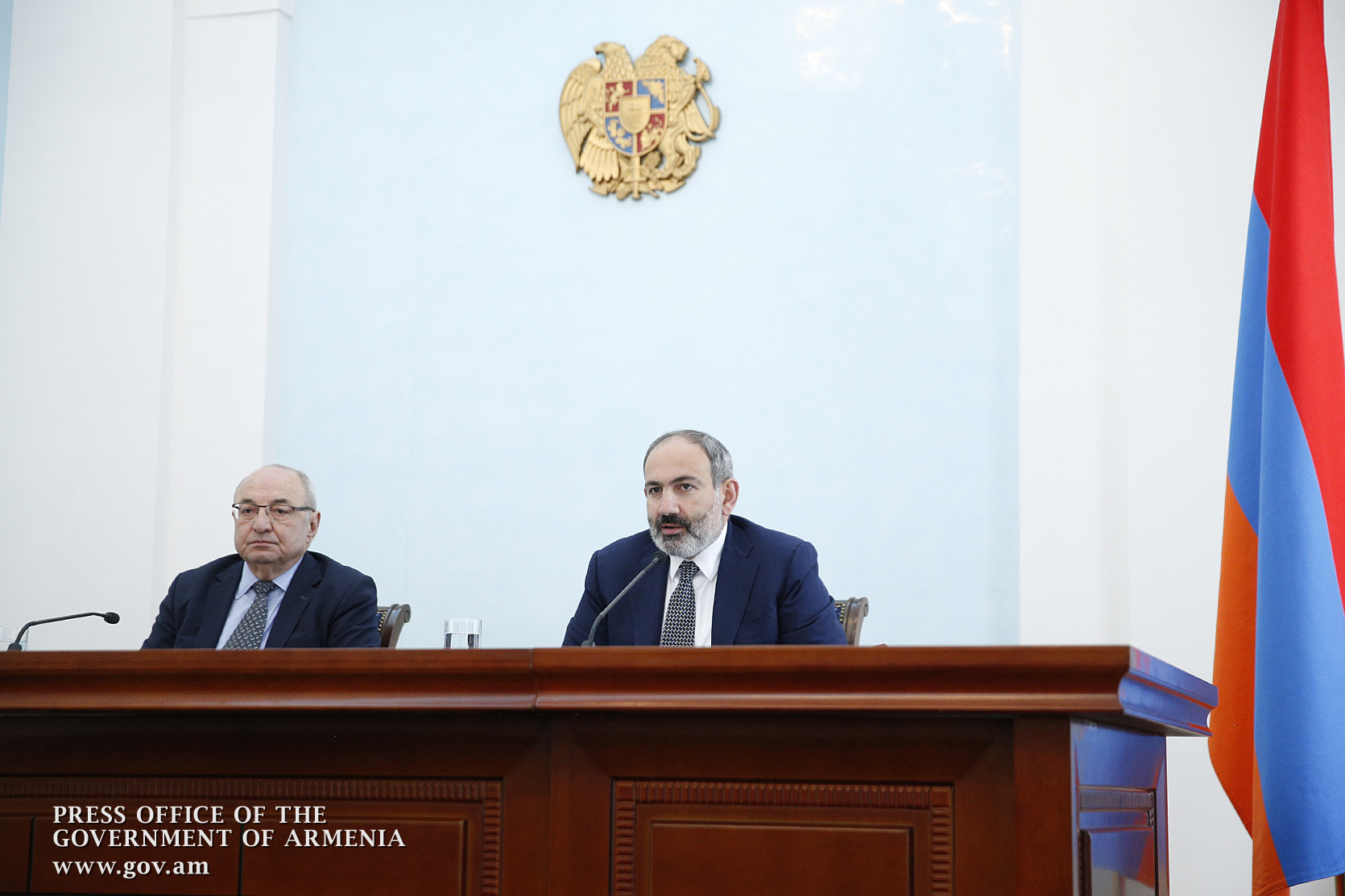Prime Minister Nikol Pashinyan received members of the Public Council, headed by Council Chairman Vazgen Manukyan.
The Prime Minister congratulated the guests on the formation of the Public Council, stressing that they can play an important role in modern times.
“In general, our country has set itself a very important and ambitious agenda; we are facing serious challenges, and I am convinced that solutions to all problems exist, they are in our collective consciousness.
Figuratively presenting the long chain of solutions, I think there are people in our country who have these solutions in their minds. In this regard, public discussions are important for identifying and combining these links. Therefore, I believe that the work and problems that we face are primarily problems of the intellectual sphere and call for smart solutions. I did not say they first of all call for smart solutions, because I am convinced, as I have said many times, that in order to solve any problem in practice, we must first model it in mind, and then be able to put it into practice, which is also intellectual work.
The most important feature of today’s government is precisely that we consider all discussions, criticism, observations, proposals useful, because we consider all this to be a tool and a factor that primarily stimulates ideas, and that which stimulates ideas is definitely useful for us,” Nikol Pashinyan said.
According to the Prime Minister, the Public Council plays an important role, taking into account the rights and functions assigned to it by law, in particular, in formulating and implementing policies, representing the interests of various sectors of society and facilitating the participation of civil society in public administration processes, including proposals to the government on the priorities of the civil society development policy, the promotion of mutual trust, dialogue and partnership between government bodies and civil society institutions clarifying public opinion on public issues, including laws and other regulatory legal acts, government programs, strategies, concepts and their projects, supporting social dialogue between social partners, trade unions, employers and the government.
“Unfortunately, this has never existed in the third republic, and we all understand how important this function is,” Nikol Pashinyan said, stressing the importance of the Public Council in terms of contributing to the unification of the efforts of Armenia’s citizens and the Diaspora-based Armenians around all-national goals within its functions.
“That is, in essence, this is a platform that should be a link between the government and the public, although, on the other hand, I think that today the government and the public are interconnected. Therefore, the Public Council needs to act as another guarantee for continued dialogue. I want to note that I intend to work as closely as possible with the Public Council, because I think that this is a platform where ideas can be generated, where debates can take place, where positions can be clarified, errors revealed, and what happens in the right direction can be as productive as possible,” the Prime Minister noted, expressing the hope that it would be possible to form and implement such cooperation.
Expressing gratitude to the Prime Minister for the meeting, Vazgen Manukyan noted that since April 5 a new constitutional body – the Public Council – has been operational in Armenia, the activity of which is governed by the laws adopted by the National Assembly. According to him, well-known and experienced people from different spheres are included in the Public Council, which makes it possible to present many promising projects and proposals for solving problems.
Vazgen Manukyan noted that the Public Council should deserve a good reputation and trust in society and at the same time work closely with the Government.
During the meeting, issues related to cooperation between the Government and the Public Council, improving the efficiency of the public administration system, the economy, including the development of agriculture, information technology, and improving the Tax Code were discussed.
Reference was made to the fight against corruption, the protection of human rights, as well as to freedom of the press, the Nagorno-Karabakh conflict, and other issues of topical interest.:

















